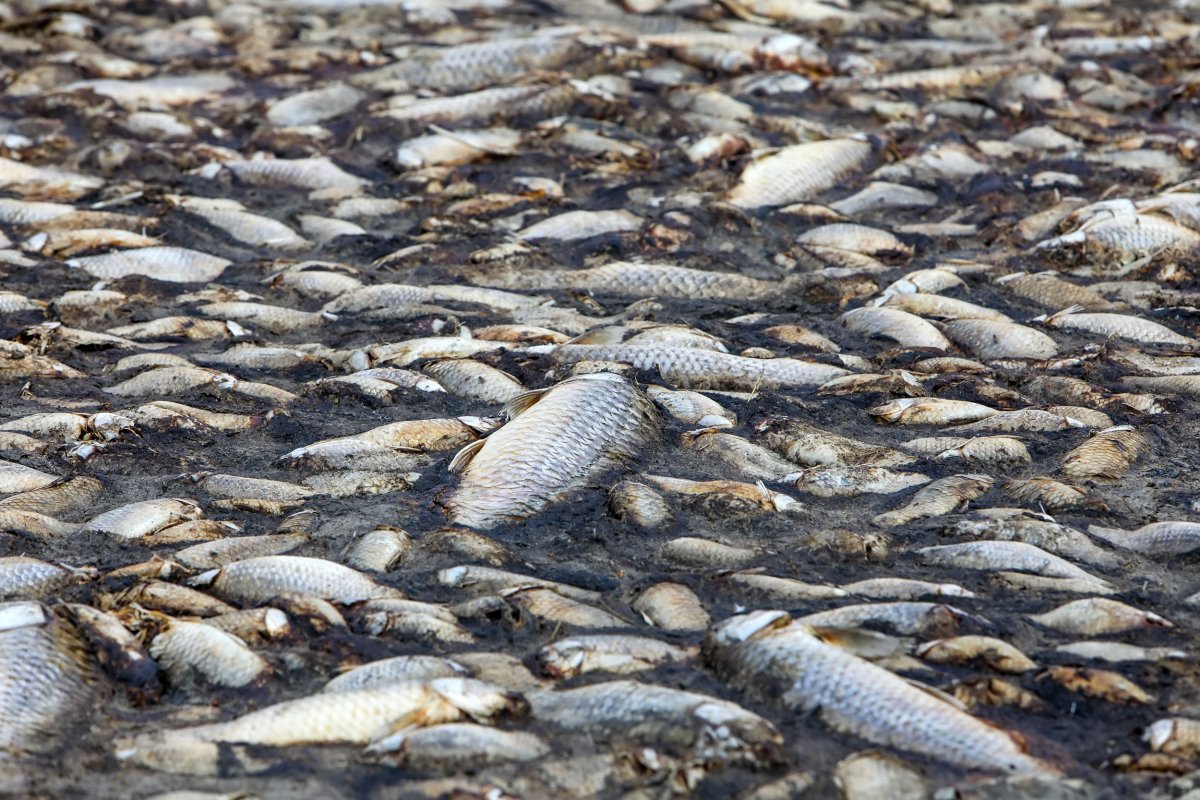Piles of dead fish have washed up on a beach in Staten Island, causing an intense odor that local residents are struggling to cope with.
In the waters and shores of Lemon Creek Park, Staten Island, thousands of fish have accumulated and begun to rot, leading some residents to stay indoors to try to avoid the overpowering stench.
"We saw like white things—it was low tide," John Mastellone, who lives next to Lemon Creek Park, told local news outlet SILive. "Today, the smell is horrific. You can't even go outside. And I don't know if it's dangerous to breathe it in or not, but we're not going outside."

The smell is likely caused by the decomposition of the thousands of fish. Fish meat contains a chemical called trimethylamine oxide, which when exposed to air after death, breaks down into other chemicals including trimethylamine, which is responsible for the characteristic rotten fish smell.
There has been no official statement about the dead fish or what is causing the deaths.
It isn't the only time that huge numbers of fish have washed up on Staten Island shores. In 2021, an influx of Atlantic menhaden, also known as bunker fish, were found near Great Kills Park, and in 2017, Lemon Creek and Wolfe's Pond Park also saw a large number of bunker fish on their shores.
Bunker fish are small and silver, so may also be responsible for the current stench near Lemon Creek, as pictures of the scene show similar-looking fish. Menhaden are a keystone species in the marine food chain, meaning that they are essential to the species both below and above them in the chain.
They eat phytoplankton, so are important in controlling algal blooms, and are important prey species to various commercially important fishing species like striped bass, tuna and mackerel. They are also fished extensively for use in fertilizers, animal feed and supplements, as they contain oils rich in omega-3. Their commercial use has resulted in overfishing of the species, and they are facing a major population decline.
In response to the 2021 wash-up, the New Jersey Department of Environmental Protection (DEP) posited that the reason was a type of Vibrio bacteria causing large die-offs, which then washed ashore en masse.
"For reasons not understood at this time, [menhaden] may be particularly susceptible to infection from this bacterium," the DEP said in a 2021 statement. "The DEP is investigating whether fluctuating water temperatures, altered menhaden migration patterns or other stressors are contributing factors."
However, a different reason was put forward in 2017 for the similar event that occurred that year, with the New York Department of Environmental Conservation (DEC) saying that "Recent warm air temperatures [had] caused waters to warm, decreasing dissolved oxygen capacity."
However, they caveated this prediction that the mass deaths were as a result of low water oxygen, saying that there was a need for additional water quality testing and a fish pathology report.
The reason for the 2022 die-off of fish is unknown at this point. There are fears that the dead fish may attract rodents and other vermin to the area to feed.
Newsweek has contacted the New York DEC and the New Jersey DEP for comment.
Uncommon Knowledge
Newsweek is committed to challenging conventional wisdom and finding connections in the search for common ground.
Newsweek is committed to challenging conventional wisdom and finding connections in the search for common ground.
About the writer
Jess Thomson is a Newsweek Science Reporter based in London UK. Her focus is reporting on science, technology and healthcare. ... Read more
To read how Newsweek uses AI as a newsroom tool, Click here.








